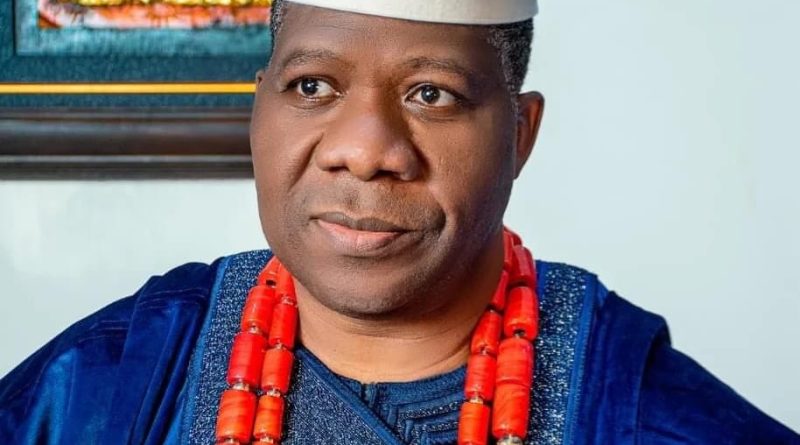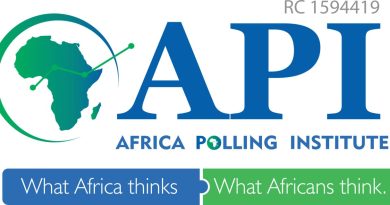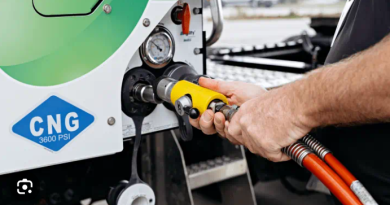NASS to transmit final report to state assemblies before December – Senate Leader
The Senate Committee on Constitution Review (CRC) has assured Nigerians that the current amendment of the Constitution will be concluded and transmitted to state Houses of Assemblies before the end of 2025.
The Senate Leader, Opeyemi Bamidele, who gave the assurance on Saturday, said the committee is working towards finalising the harmonised report and meeting its legislative timeline for submission.
Mr Bamidele disclosed this at the close of the two-day Southe-west zonal public hearing on the review of the 1999 Constitution held in Lagos between 4 and 5 July.
“We have completed the public hearing. We are now returning to Abuja to prepare our report. Part of our time table is to have final notifications before the end of the year and transmit our report to all state assemblies. This will round the process of the constitution review,” he said.
Several Nigerians have criticised some provisions of the 1999 Constitution, which has been in use since the country’s return to democratic rule that year. The criticisms came in the light of the rapid technological, social, and political developments in Nigeria.
Since 1999, the National Assembly has altered the document five times, though some items proposed for amendment were defeated at the state legislatures
Huge sums have also been expended for the exercise with the federal legislature budgeting separately for it.
The current review exercise, chaired by the Deputy Senate President, Barau Jibrin, began with a retreat in Kano and proceeded to hold simultaneous zonal public hearings in each of the six geopolitical zones, which ended today (Saturday).
The selected host cities were Lagos (South-west), Enugu (South-east), Ikot Ekpene (South-south), Jos (North-central), Maiduguri (North-east), while the North-west hearing in Kano was postponed to honour the late business icon, Aminu Dantata.
Designated senators supervised proceedings across the zones. Senate President Godswill Akpabio (South-south), Mr Bamidele (South-west), Deputy Senate Leader Oyelola Ashiru (North-central), Chief Whip Tahir Monguno (North-east), and Deputy Chief Whip Peter Nwebonyi (South-east).
Major issues discussed
The Lagos hearing, like others across the country, saw active participation by traditional rulers, civil society organisations, and regional interest groups.
Earlier, Mr Bamidele said the committee received 31 proposals for the creation of new states and 18 requests for the establishment of additional local government areas from various interest groups in the country.
Giving the breakdown of proposals for creation of new states, the senate leader said there were six requests from the North-west, eight from North-central, five from South-east, six from North-east, six from South-south and four from South-west.
He also noted that some prominent Abuja indigenes submitted a request seeking recognition of the Federal Capital Territory as a state.
For local government areas, Mr Bamidele said seven requests were received from the North-west, five from the North-central, one from the North-east, three from the South-south, one from the South-east and one from the South-west.
Beyond state and LGA creation, Mr Bamidele said the committee also received proposals for the creation of state state police, a State Security Council to advise governors, and several inputs on gender equality, judicial reform, electoral reform, and inclusive governance
Importance of state assemblies
Mr Bamidele reiterated that no amendment can become law without the support of at least two-thirds of the 36 state houses of assembly. He urged all stakeholders to start lobbying state lawmakers.
“There is nothing the National Assembly can do without a two-thirds approval of all proposals by the state legislatures. All stakeholders must work with their lawmakers at the state level. We must appreciate the role of state assemblies to ensure the passage of the proposals into laws,” he said.
He emphasised that the state lawmakers are not just passive recipients of the report but active participants in the constitutional amendment process.
“State assemblies are part of the process. We have been in Lagos State in the last 48 hours, listening to people’s aspirations, concerns and will. All six states in the geo-political zone were represented by their elected representatives. We are in this process together to receive their presentations.
“The state assemblies are already anticipating the report of the constitution review from the National Assembly. They are not waiting for the report alone. They are also part of the constitution review process. I do not envisage any problem from the state assemblies.
“Therefore, we are advising all the stakeholders who are also looking for special considerations to extend their advocacies to the state assemblies. It is not just about them as elected representatives, but as representatives of people who elected them. People should be aware when they are making decisions to be sure that they are also doing so in consonance with the wishes of their constituents,” the senate leader said.
State legislatures pledge support
Speaking on behalf of the state assemblies, Debo Ogundoyin, chairman of the Conference of Speakers of State Legislatures of Nigeria, expressed optimism that the review would lead to a more balanced federation.
Mr Ogundoyin, represented by Abiodun Fadeyi, Deputy Speaker of the Oyo State Assembly, advocated for more devolution of powers to states to foster rapid development.
He pointed to the example of electricity, which was recently removed from the exclusive list, enabling many states to pursue independent power initiatives.
“Devolution of powers is key to this on-going constitutional amendment by devolving key items from the Exclusive Legislative List to the Concurrent Legislative List in the interest of all. For instance, the removal of the electricity matter from the Exclusive Legislative List has significantly transformed many states’ power sector through independent power supply initiatives.”
Mr Ogundoyin also endorsed the creation of state police, stating that the benefits including community policing, enhanced accountability, and job creation outweigh the risks.
READ ALSO: Jaiz Bank appoints Ahmed Indimi, Nike Kolawole to board
“Concerning the state police, all the stakeholders will agree with me that the debate over the establishment of state policing has garnered momentum from both supporters and critics. The potential benefits of state police far outweigh the challenges.
“In essence, what the amendment seeks to address will be the powers, responsibilities and limits of the state police should be clearly defined, provide oversight mechanisms to prevent abuse and design a comprehensive framework for federal and state police to work in harmony to balance power and for effective coordination mechanisms,” he said.
With the public hearings now concluded, the Senate Committee on Constitution Review will consolidate its feedback into a harmonised report. The report could be debated as a bill in the National Assembly and the passed bill would be transmitted to state assemblies, before December, in line with the committee’s timeline.
Support PREMIUM TIMES’ journalism of integrity and credibility
At Premium Times, we firmly believe in the importance of high-quality journalism. Recognizing that not everyone can afford costly news subscriptions, we are dedicated to delivering meticulously researched, fact-checked news that remains freely accessible to all.
Whether you turn to Premium Times for daily updates, in-depth investigations into pressing national issues, or entertaining trending stories, we value your readership.
It’s essential to acknowledge that news production incurs expenses, and we take pride in never placing our stories behind a prohibitive paywall.
Would you consider supporting us with a modest contribution on a monthly basis to help maintain our commitment to free, accessible news?
Make Contribution
TEXT AD: Call Willie – +2348098788999







